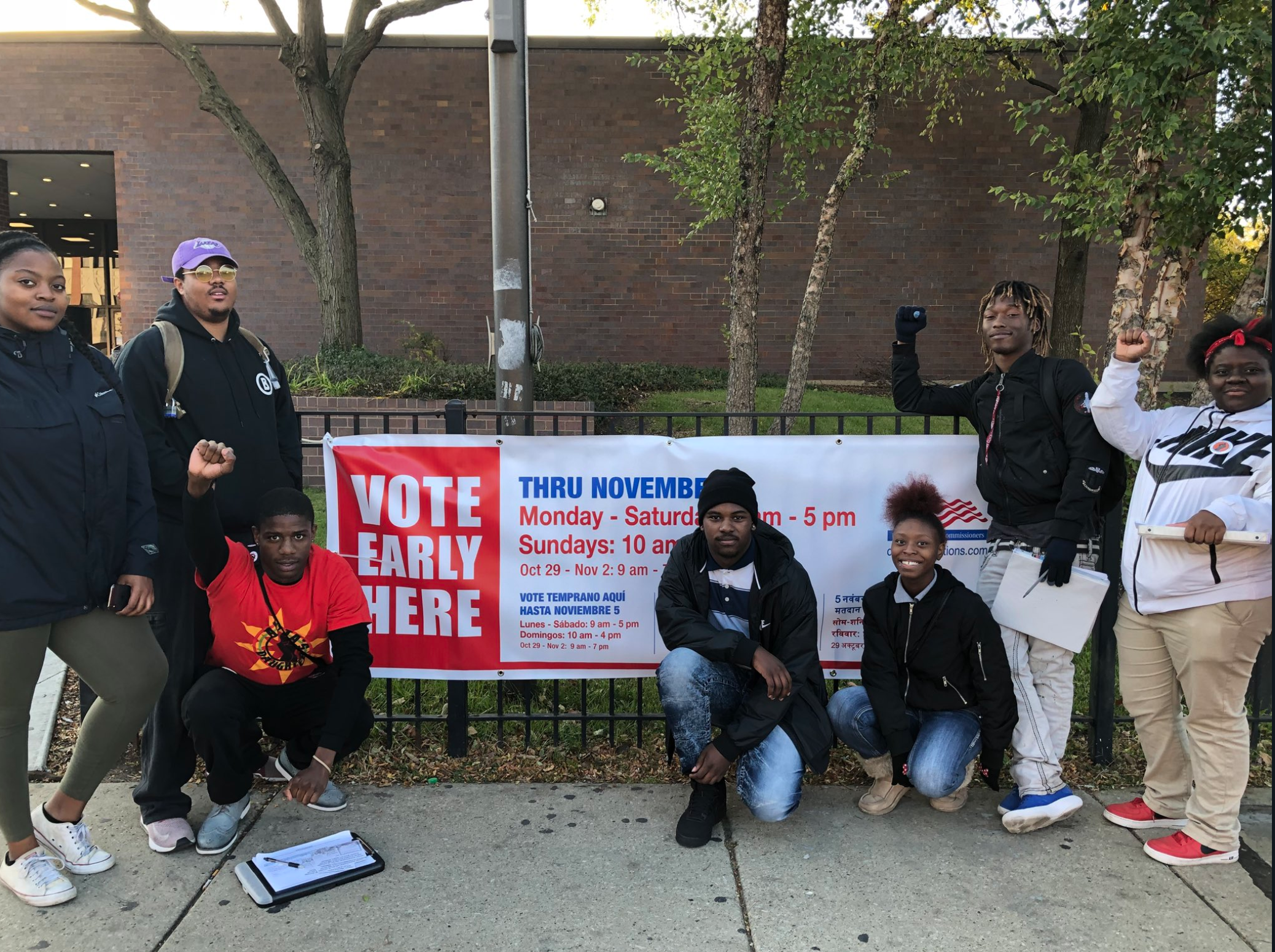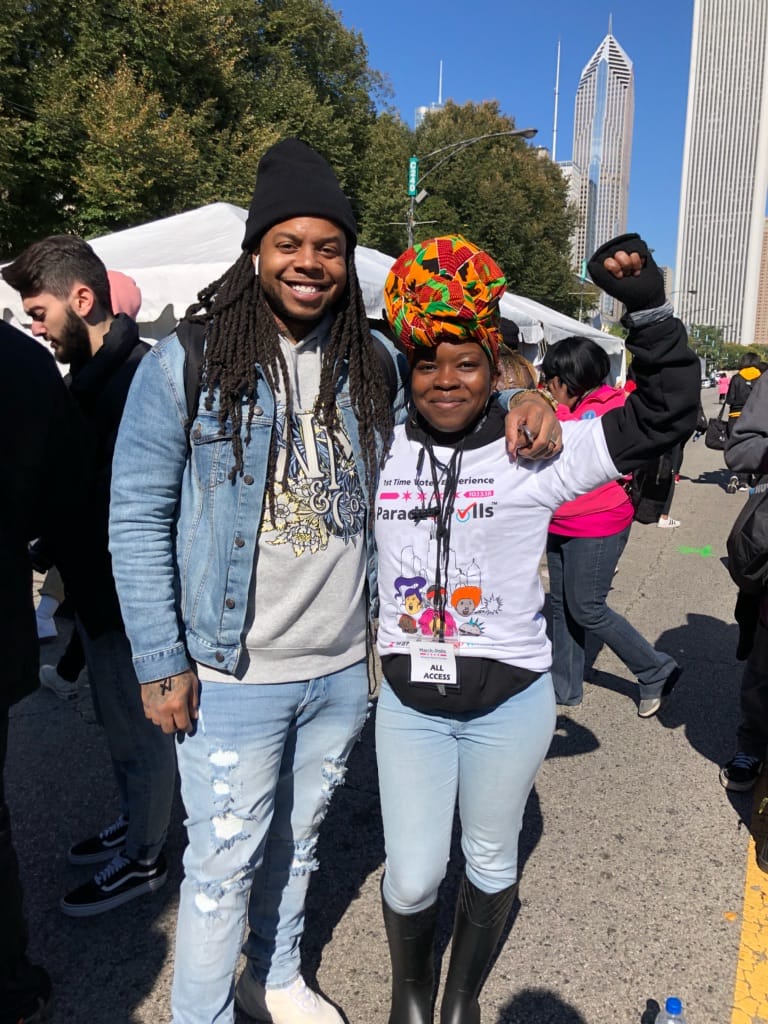
It’s election season in Chicago!
Cue the political rallies, fundraisers, candidate forums, corporate endorsements, big money ads, pompous rhetoric, mudslinging, petition-signing, yard signs, and –– for young people –– a constant reminder that they better vote. But have youth heard—and acted upon—that message?
The upcoming elections are clearly a serious matter. The gubernatorial election features two billionaire candidates who have both had their share of nationally publicized controversies. Both candidates have also spent unprecedented amounts of money on their campaigns (early in the race, ABC 7 reported that the candidates were spending $300K a day on their campaigns.). Important measures on the ballots include: term limits, paid vacation, marijuana legalization, and minimum wage.
The November ballot is as significant as the previous ballots, but there is something unique about the current Chicago political climate. For almost a half-decade Chicago’s young people have been protesting a variety of issues –– laying bodies on concrete against police brutality, taking trips to the Illinois legislature to question the absence of a state budget, emphatically chanting about education during rallies at the Thompson Center.
Will there be a transition to the polls? Absolutely, according to several organizations that are committed to pushing Black millennials and generation-Z to the polls:

Good Kids Mad City
Good Kids Mad City (GKMC) originated after high school students across the country led national walkouts following the Parkland shootings earlier this year. Named after rapper Kendrick Lamar’s classic work “good kid m.A.A.d city,” the group’s Twitter bio reads “We are Black and Brown young people united in fighting to end violence in our cities. We call for more resources to underserved communities.” GKMC identifies voting and electoral politics as integral in acquiring the resources needed for violence prevention. In addition to waging protests that highlight gun violence, the youth-led organization has taken the streets to canvass Black communities in hopes to raise consciousness around voting. These street canvassers attempt to have registered voters sign voter pledge cards –– cards symbolizing a registered voter’s commitment to vote.
Chicago Votes
Chicago Votes is an organization dedicated to informing and training young people in learning the basics of democracy, primarily in electoral politics. The organization is responsible for voter registration drives for young people in Cook County and Chicago and pushing a Voting Rights Bill for the incarcerated (HB4469) into Springfield. They advocate for three key aspects in voting:
- County jails and election authorities must collaborate in creating a process that ensures that pre-trial detainees can cast their ballot during elections.
- The Illinois Department of Corrections and each county jail must provide eligible citizens released from their custody a voter registration application.
- The Illinois Department of Corrections to provide citizens released from their custody detailed information about their voting rights.
Governor Rauner vetoed the bill after it passed both chambers with bi-partisan support.

Despite the governor’s veto, Chicago Votes is still churning out effective voter education programs and civic engagement events for the millennial voter. “Millenials are at a point that they have the power to decide what politicians look like,” says Erica Nanton, a Chicago Votes Community Engagement Manager. “I’m not just talking about the color of their skin. We’re talking actually influencing culture. We can decide on their style of dress, how they talk, and what they talk about. Millennials have the power to completely shift this dynamic.”
Nanton points to the Chicago Votes “Give A Sh!t” campaign as a testament to a reimagining of political engagement for younger generations. The campaign brings civic engagement and political discourse to popular and nonconventional events. “Why can’t we engage politically at a party?” questions Nanton. “Why can’t we have conversations on voting at places where we want to be? One of the reasons many young people do not participate is because the political ether is boring and stuffy.”
The “Give A Sh!t” campaign brings politics to unexpected venues like streetwear fashion shows, music concerts. and happy hour at bars. “Give A Sh!t” even partnered with the Chicago’s Women’s March for a “Parade to the Polls” event that featured live performances from local Chicago musicians. “This is our time for us to create the world we want to live in,” says Nanton.
Level Up & Vote
“You have to meet the people on the block and speak their language because they feel disconnected to politics,” says Chantal Grant, co-founder of Level Up & Vote. “I try to continue the work of Josie Childs and so many others before me. They would be trying to push our people to polls at my age because there are important issues that need to be addressed.”
Level Up & Vote is a Black-led initiative that aims to bring untapped Black voters to the polls, especially the young voter. The organization partnered with WVON to host a Thursday night radio show highlighting young voices airing their grievances about politics but also informing Black audiences of civic engagement; this is one of its many collaborations.
“We like to be intergenerational in our approach because the young people should set aside ego and listen to wisdom,” says Grant. “But elders need to know that we’re going to be the ones who lead our people into a new world.” As an example of its intergenerational approach, Level Up & Vote partners with “10 x 10 to Win” in its effort to establish a Black voting bloc, and it supports the Coalition of African American Leaders (COAL) in its monthly power breakfast series.
In Chicago, young people are pushing their peers to the polls. Many do recognize the importance in voting as well as the history tied to it. Perhaps, those that refrain from the process need someone who looks like them to help them get engaged or feel represented. Nanton believes this to be the case, “Right now we are living in the imagination of the people who participated in this process. We have to see ourselves involved in this process –– participating –– to get our young people involved.”